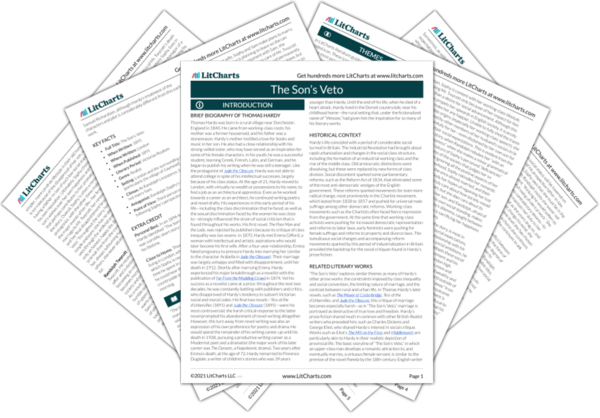In this final scene, the narrative perspective shifts, and the narrator describes the characters as if the readers knew nothing about their stories, not even using their names. The narrator never explains the causes of Sophy’s death, but the reader could infer that the stress and sadness from her conflict with her son and her unfulfilled love for Sam were contributing factors. Sam, who looks on from his grocery store, is the only character who displays true grief for Sophy’s passing, showing how sincerely he cared for her. In contrast, Randolph does not seem to be grieving for his mother at all, instead preoccupied by his irrational hatred for Sam. Perhaps Randolph hates Sam for what he sees as his presumption in proposing to marry his mother, and for the inconvenience that Sam has caused to Randolph in his quest for social prestige. Or perhaps Randolph feels an unconscious jealousy of Sam because of Sam’s obvious, openly expressed love for Sophy—a love that Randolph no longer knows how to feel. The ending scene of Sophy’s funeral procession is especially tragic in what it suggests about all the unfulfilled possibilities of Sophy’s life—possibilities that, we now know, will never be achieved.


